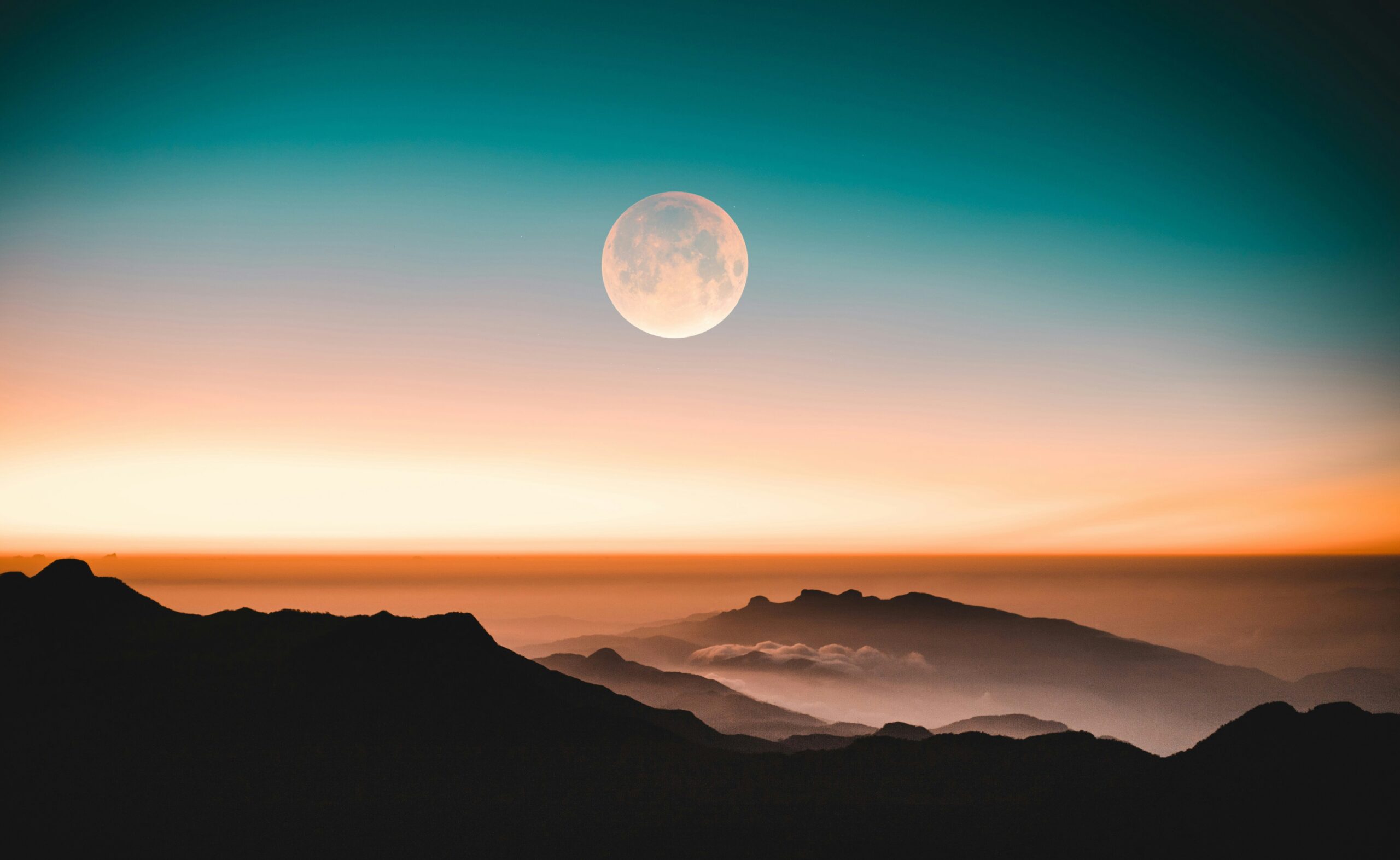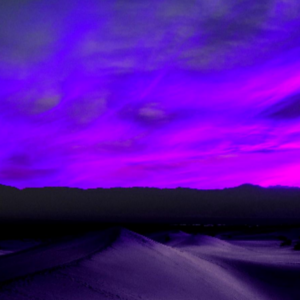After a greasy lunch at a diner on the side of the highway, I opened my coin purse and started laying the coins out on the table, trying to remember their shapes and denominations.
Twenty-five, fifty, that small one is a ten so that’s sixty… sixty-five… I pushed the coins around, arranging them in a grid. Thirty-two dollars and sixty-eight cents. Before our trip, I practiced on the floor of my bedroom, teaching myself to recognize them on sight so I wouldn’t fumble with the pouch. American coins were so light, they didn’t feel like they were worth anything at all.
Deva, sitting next to me in the booth, tugged on my shirt sleeve. Her eyes were fixed out of the smudged diner window. “Monday,” she whispered, “Monday, there’s a huge tree outside.”
I pushed three copper coins forward and put all of them in a pile on the bills. “Act normal,” I warned her.
Outside, two trees stood on the side of the parking lot. Their branches were spiky and stretched wide. “I want to take a picture with it. Can we?” she asked.
“I’m not going to take a picture of you with every tree we see.”
At the counter, the server refilled a man’s coffee mug. A television mounted in the corner played a sports game that no one was watching. Two of the other booths were occupied. No one seemed alarmed or even aware that there was a tree outside.
Selene sat across from us in the booth, flipping through her dog-eared travel guide she stashed in her rucksack. “We can stop on our way back to the car,” she offered. “What about you, Monday? Do you want a picture with the tree?”
I shook my head, but Deva squealed. “Oh, my gosh. Yes. My brother would freak out.”
The waitress noticed the money sitting at the end of our table and came by to collect it. I kicked Deva under the table, hoping she wouldn’t say anything about trees in front of the server.
“Thanks for stopping in, ladies,” she said, a pleasant local accent curling her voice. As she scooped up my change, she nodded to the book in Selene’s hand.“Where y’all visiting from?”
“Out of town,” I said in English. Between the three of us, my English was the best—I’d spent a lot of time watching American sitcoms and YouTube videos and was confident I could get the accent right so long as I didn’t need to go on and on in long sentences. I quickly grabbed my bag. “Thank you,” I nodded my head in a slight bow, and then realized my mistake. They don’t bow here, idiot, I mentally kicked myself. If the waitress noticed, she didn’t comment, but my cheeks still turned bright red.
On the way back to the car, we stopped for a better look at the tree. It was tremendously spiky, but there weren’t any leaves except for all the way at the top. Selene flipped to the back of her book.
“It’s a palm tree,” she explained. “They only grow in warm places.”
Deva snapped a photo with her camera. “Does it bite?”
Even though Mom and Dad were never going to believe I saw an actual palm tree, I didn’t get a photo standing with one. That was such a touristy thing to do; besides, they were everywhere, lining the streets, crowding in front yards. One day, I’d live here, and I’d have my own palm tree in my front yard like a pet. That would really impress them.
Lots of young people from our hometown go traveling after graduation. The best way to understand your place in the world is to see it, I suppose. But most of our classmates were taking guided tours, with tour buses and guides and planned itineraries. I hated the idea of watching the world whizz past from the safety of a tour bus, surrounded by people from my hometown. When Deva, Selene, and I started talking about this trip a year ago, I decided I was going to plan it all myself. I wanted to take a road trip across the American southwest, so we could chase the sun and her warmth.
In Southern California, we stopped at a mall to go shopping for local fashions. Where we came from, everyone dressed the same, with long sleeves and high collars to keep the dust off our necks, light colors that could be easily seen in the dark. Fashion didn’t matter much when you have to cover it all up with a protective suit anytime you want to go outside, anyway. Here, the sun was a given. It came every day, no matter the time of month, and everyone would lie around and bake it into their skin.
Deva picked out an outfit for me: a bright red tank top and shredded jean shorts, the complete antithesis of what we’d wear back home. In the full-length mirror in the dressing room, I stared at myself. My extraordinary paleness seemed to glow. I almost looked like one of the carefree American teenagers I’d seen in a million movies, if it weren’t for my stiffness, my paleness, my otherness.
Still, I wore the outfit out of the store.
We left the coast and continued east, leaving California behind, heading into Arizona. Unprotected from the sun, my shoulders burned, leaving me with an itchy, peeling sunburn. At a gas station in Yuma, I was patrolling the aisles looking for aloe vera when I saw them: a stack of Moon Pies, each individually wrapped in a garish yellow and blue wrapper.
Selene saw them too. She picked one up and flipped it over. “What are these doing here?”
I shrugged. She grabbed three and piled them into her hands. “Isn’t it funny, though? We should try them!”
“We eat these all the time at home, though,” I said. “I didn’t come all this way just to eat moon pies.”
Selene dumped our snacks on the counter and the attendant behind the register started ringing them up. I grabbed my coin purse, ready to start counting out money, but the satchel slipped out of my hand. All the thin little American coins went tumbling in every direction. Some rolled under the cash register. One flew right off the counter and towards the wall of cigarettes.
“Sorry, I’m so sorry,” I apologized, face red as my sunburn. Sometimes, for all the English I knew, it felt like sorry was the only word I ever got to use.
Selene helped me wrangle the coins and set them on the counter, until the attendant behind the register assured us that we had more than enough.
When we got back to the car, laden with Chex Mix and beef jerky, Selene showed off the Moon Pies to Deva. We all sat in the trunk, unwrapping the cellophane and biting into the chocolate cookies.
“Sort of good,” said Deva.
“Sort of stale,” said Selene.
“It doesn’t taste like home at all,” I sighed. Is this what everybody here thought our food tasted like?
To make matters worse, the barren landscape at Monument Valley kept reminding me of home. Strange-shaped buttes, crater-like dips, the open sky unmarred by light pollution. The sand out there didn’t crunch the same as regolith, though.
We parked our car at the campsite and pitched a tent. In the evening, after a dinner of baked potatoes and fire-grilled meat skewers, Deva and Selene skipped around our campfire. I sat atop the hood of the car and watched the sun drop below the horizon. The sky turned from blue to yellow to pink to the faded black of an old pair of jeans. Stars scattered above us, but I kept my eyes trained on the moon.
“Come dance with us, Monday,” Selene insisted. The radio whined and sang about lost loves, lost homes. I just shook my head.
I had read every book and blog. I knew how different this place was going to be from home. I thought I was prepared. But no one told me how exhausting it would be to always be surrounded by the strange.
At home, our streets were quiet, our houses small and dome shaped. No grass in the front yard to decorate with palms and bushes. No trees at all. It was usually too dark to spend time outside, anyway. On the crescent days, when so much of the land was dark, we’d walk through the streets holding hands, so no one would get lost. And on the new moon, when everything was in darkness, we huddled in our houses all day to eat and drink with family. It was a time for reflection: “New moon, new us,” my dad would always say, and my mom would cackle and laugh like it was the funniest thing she’d ever heard. Tonight was a full moon, so while the three of us camped in the desert, everyone back home would be out enjoying the light at picnics in the Sea of Tranquility. I wondered if my family was looking down at me, trying to find me like I was trying to find them.
After we got off the lunar shuttle at the Los Angeles Spaceport, I was afraid of being branded a tourist everywhere I went, just another moon girl playing pretend for a few weeks before going back to her home in the night sky. I didn’t just want to visit, I wanted to belong. But I never would, would I? Because no one on this planet named their kid Monday.
Selene and Deva stopped dancing at the end of the song and plopped down by the fire. Maybe I should just go to bed early, I thought. This night sky, dark and sparkling like home, was only making me miss what I left behind.
Deva saw me curled up with my knees hugged to my chest. “What’s wrong?” she asked. Suddenly, the weight of everything—the prickling sunburn, the whistling desert wind, the big black sky above—fell on top of me, and I started to cry.
“I miss home,” I said, burying my face deeper in my arms. “I miss the moon pies the way my mom makes them. I miss dark days, and holding hands, and—” I stopped to sniffle up the trail of snot running out of my nose. “I miss the moon!”
Deva rubbed my arm, trying to console me. “It’s okay,” she whispered.
I stifled my sobs, not because I wasn’t sad anymore, but because I didn’t want to be a burden. They were having fun. They were living the Earthen life they always wanted. I shouldn’t spoil it for them.
Before I could even ask, Deva held my hand. I stretched out my hand to Selene, offering it to her. “It’s dark,” I said, when she looked at it, “I don’t want to get lost.”
She smiled lightly and took it, folding up her maps as we all reclined backwards to look up at the sky. Just as I started to relax, something in the desert let out a mournful howl. It echoed around the rocky walls and through the air.
“What was that?” I asked, turning to look.
“Just a coyote,” Deva said, “he’s far away, don’t worry. I read somewhere that they like to howl at the moon.”
“Stupid coyote!” Selene yelled out to the emptiness. “They can’t hear you up there!”
I brushed some tears off my cheeks, laughing a little bit. Then I threw my head back and howled, too. Then we were all howling, and crying, and laughing. Three homesick girls, howling at the moon.




